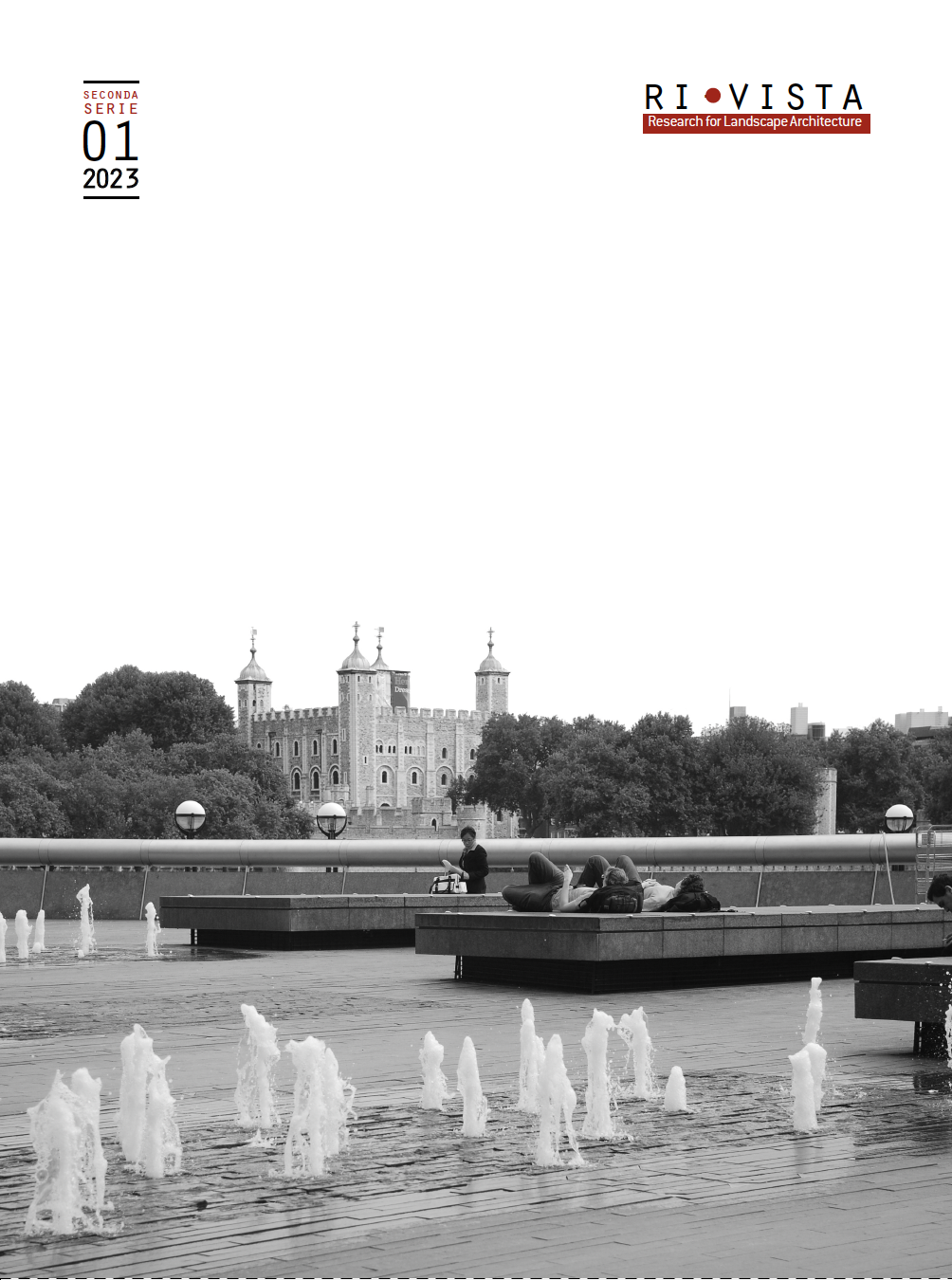Published 2023-12-14
Keywords
- Mediterranean landscape,
- Islamic garden,
- agriculture,
- rural landscape,
- traditional techniques
How to Cite
Copyright (c) 2023 Adriano Dessì, Francesco Marras

This work is licensed under a Creative Commons Attribution 4.0 International License.
Abstract
Walafrid Strabo's Hortulus, a treaty on agriculture written in the 6th century AD, refers techniques and practices for drainage and irrigation of fields nowadays at the centre of discussion (Zoppi, 1995). The theme is particularly critical when compared with the invasiveness of many contemporary systems. The topic of water management represents a feature of human experience on earth since its appearance. It is also one of the most continuous – perhaps the most necessary – tools in landscape construction. While innovating over time, water techniques maintain codes, customs, even rituals, according to constant and apparently opposite principles of rationality and imageability. Reason and figure, utility and symbol, survival and myth lead the construction of the human settlement around water and this contribution tries to outline some of its features especially as regards the "immenso deposito di fatiche" (Cattaneo, 1868) constituted by Mediterranean agricultural landscape and its inhabiting forms.
If, on the one hand, a complex and heterogeneous picture can emerge in the experiences described, on the other the essay tries to retrace a coherent path. Finally, this tries to provide a perspective that is still possible for a landscape society, the Mediterranean one, in which living and cultivating water do not belong only to a necessity but to a real and inescapable identity.





